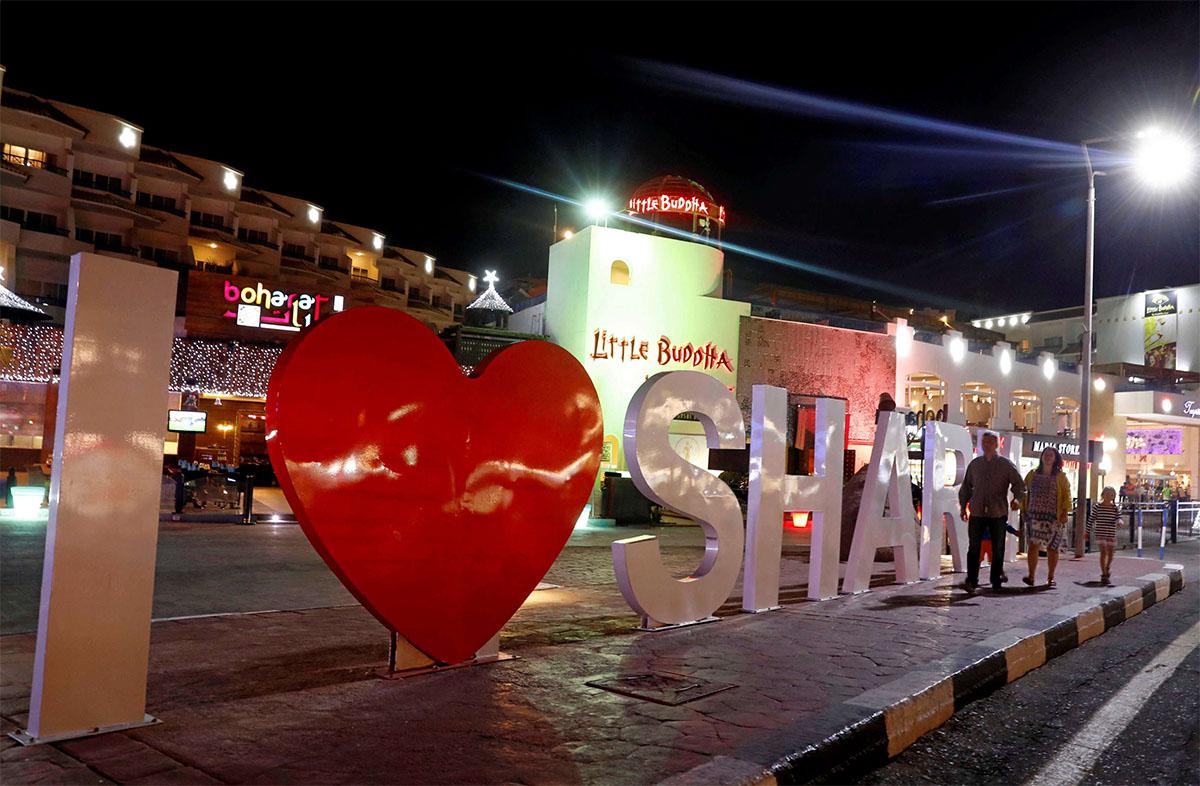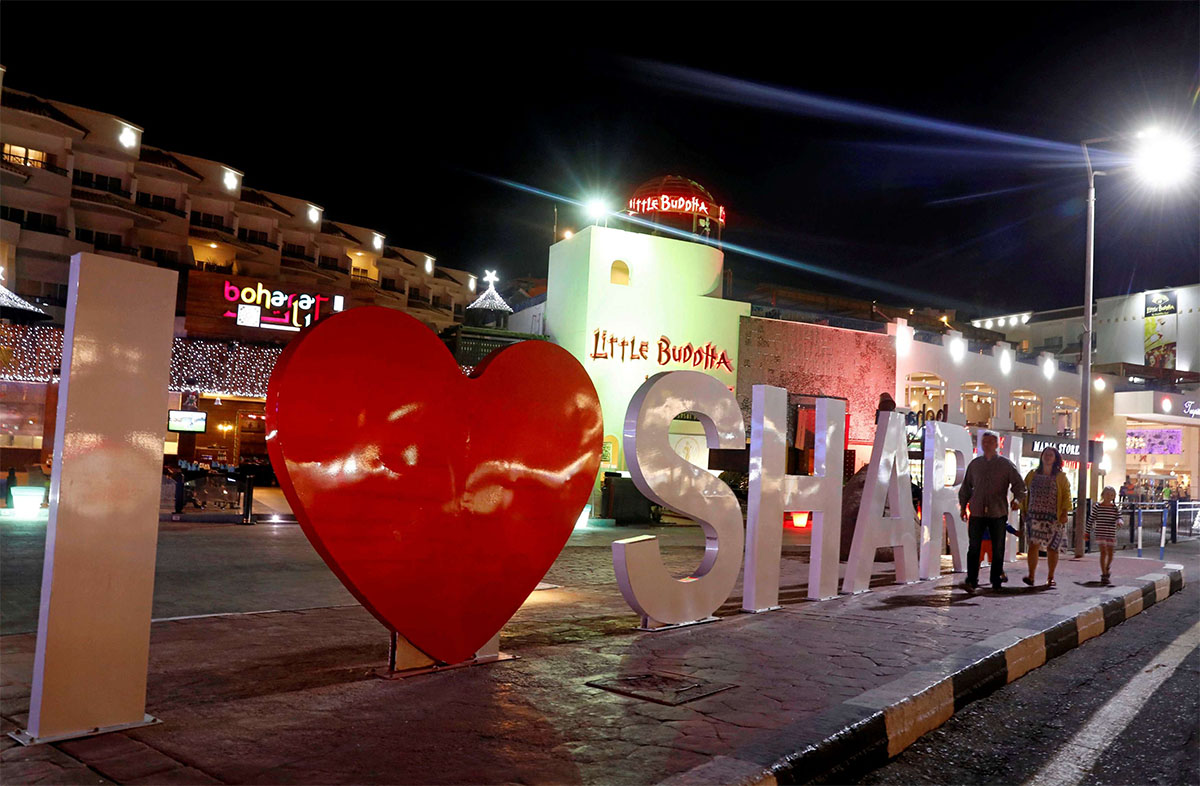Modest expectations in Sharm el-Sheikh
Not many tangible breakthroughs are expected during the first Arab-European summit in Sharm el-Sheikh Egypt. It is one of those summits where stakeholders are just happy to see the event take place. The group photo becomes an end in itself.
As far as substance is concerned, the February 24-25 summit does not seem to be destined to much beyond perhaps shedding light on obstacles in the path of meaningful dialogue between the two shores of the Mediterranean.
Relations between the two sides have never been so lopsided. One side is fairly prosperous and steeped in the global politics of power. The other is disunited, economically faltering and mired in war and strife.
This imbalance can only distort the terms of the dialogue but Europe’s ascendance in this dialogue is not a given. Arabs are very likely to be heard if they adopt a common stand. That was the case last year when North African capitals pushed back against the European suggestion of establishing "disembarkation platforms" for illegal migrants in North Africa.
Even if geopolitical and economic realities predestine Arabs to be vulnerable to pressure, a lot has changed in the last few years. Gone are the days when the European Union could seek concessions simply by twisting the arms of Arab regimes in closed-door sessions. Public opinion is a serious factor now in the Arab world, even where democratic institutions have not been established.
Events have also altered Europe's view of the opposite shore. Since 2011, trepidations have dominated Europe’s perspective on North Africa and the Middle East. The Arab world’s violent tremors and waves of migration have become a major source of concern for Europe. Consequently, the pre-"Arab spring" clamour for human rights and democracy, although not totally muted, has seen its volume toned down.
In the case of Tunisia, where the relative success of the democratic transition was supposed to clear the way for meaningful EU assistance, the European Union's modest support has dispelled any Marshall Plan-type illusions. Europe preferred to lend itself to accusations of inconsistency and double standards than to live beyond its means.
In today's not-so-brave new world, Europe's outlook on the region is mostly tainted by fear. Wariness about terrorism and illegal migration have become too often the determining factors.
Some in the Arab world may have been surprised when Europe moved to blacklist Arab countries among nations representing a threat of money laundering and terror financing. The European Commission stated that "the aim is to protect the integrity of the EU financial system."
It did not matter if the risks were imagined or real or if the methodology used was far from fool-proof. The move showed how the perception of Europe's vital interests could outweigh concern for serious reputational damage to Arab countries.
Europe itself is a changed continent, however, with the bonds of its union fraying. The migration crisis, unleashed by war in Syria, Iraq and Libya, created new political and electoral priorities for European leaders. Mounting populism led to the fissuring of the European Union’s previous harmonious facade.
The Euro-Arab dialogue is hence shaping up like a dialogue between two fractured blocs. If intra-Arab divisiveness is proverbial, that of Europe is a sharp new trend.
During a ministerial meeting in Brussels in early February, there was no agreement on the agenda of the forthcoming summit. Arab League Secretary-General Ahmed Aboul Gheit explained there were “more complications on the European side than the Arab side.” The EU representative for foreign affairs and security policy, Federica Mogherini, shot back: “I would say the contrary.” There was clearly a bit of both.
At Sharm el-Sheikh, Europe is expected to try to focus on the migration issue even if other items, such as trade and investment and the many conflicts of the region, will be nominally on the agenda.
It is hard, however, to see Europe paying more than lip service to Middle East peacemaking because it seems to accept that outcomes of war and peace in the region are more determined these days by US and Russian moves and by the manoeuvres of regional powers.
Many of the dreams of concerted Mediterranean policies and Euro-Arab dialogue were unrealistic from day one. For decades, policymakers in the Maghreb and the rest of the Arab world have advocated for the ideal of co-development between the two shores of the Mediterranean. In reality, each shore has always had its own priorities and constraints.
The main enduring constraint has been economics.
Negotiations of economic character with the European Union have always been a heartless business in which Europe's interests come first. Much so today, as the European Union faces its own economic woes and the self-inflicted wound of Brexit.
If the European side is more divided than ever, its divisions take second seat to Europe's perception of the economic priorities and fundamental interests of its bloc.
The Maghreb and the rest of the Arab world have only themselves to blame as they remain among the least integrated regions of the planet.
The encounter between the 50 countries or so that will be taking their seats in Sharm el-Sheikh will show that any worldview carries as much credence as the ability of its holder to defend that outlook.
The ideal of co-development between both shores of the Mediterranean is now perceived by Arab and European diplomats as a utopian chimera. It probably was always so.
More than ever, there is need for a reset in Euro-Arab relations.
Oussama Romdhani is the chief editor of the Arab Weekly.
Copyright ©2019 The Arab Weekly







